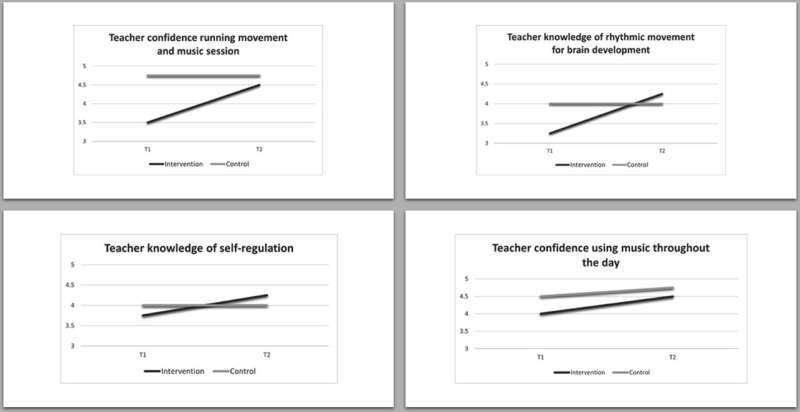This article has been reviewed according to Science X's editorial process and policies. Editors have highlighted the following attributes while ensuring the content's credibility:
fact-checked
peer-reviewed publication
trusted source
proofread
Results are in for novel rhythm program giving preschoolers a 'brain boost'

Preschool-aged children gain a "musician's advantage" by participating in a specialized rhythm program, investigations by Queensland University of Technology (QUT) researchers have found.
Published in Early Childhood Research Quarterly, the research showed that early childhood teachers without any musical background can deliver rhythm and movement lessons effective for self-regulation growth in children.
The program had a positive impact for a child's executive function, with recommendations to scale up such programs in kindergarten and long day care settings as they improved a child's school readiness with continued gains into the early years of school.
Findings included:
- Specialized rhythm and movement program enhances impulse control, attention & behavior.
- Program was developed to give 3–5 year old children the "musician's advantage."
- Moving to a beat helps support and boost brain architecture.
Designed and led by Associate Professor Kate Williams, from QUT's Centre for Child and Family Studies, the RAMSR program operated in preschools in Queensland with children from low social economic backgrounds.
Associate Professor Williams said participating groups received 16 to 20 sessions of a rhythm and movement program over eight weeks.
"Not all children have access to high-quality music experiences even though these are beneficial for self-regulation development," she said. "Learning these important skills of regulating attention and emotion, working memory, ability to shift attention between information and tasks, impulse control and concentration all affect learning and social development.
"We developed specific music tracks for the program matched with complex coordinated movements for the children. We included some brain tricks to practice impulse control, such as asking children to be still even when music is playing, with the brain's 'air traffic control system' having to kick in to restrain the natural impulse to move.
"The children love the 'slow down' end of the session when they are encouraged to engage in slower, more mindful movement, and focus on their breathing. Repeated measures found greater teacher-reported self-regulation skills in the RAMSR children across the kindergarten year than those of the control groups."
A further study showing longer term benefits for RAMSR children as they transitioned to school, published in Developmental Science, is also available to download.
More information: Kate E. Williams et al, Rhythm and movement delivered by teachers supports self-regulation skills of preschool-aged children in disadvantaged communities: A clustered RCT, Early Childhood Research Quarterly (2023). DOI: 10.1016/j.ecresq.2023.05.008
Laura A. Bentley et al, A translational application of music for preschool cognitive development: RCT evidence for improved executive function, self‐regulation, and school readiness, Developmental Science (2022). DOI: 10.1111/desc.13358
Journal information: Developmental Science
Provided by Queensland University of Technology





















